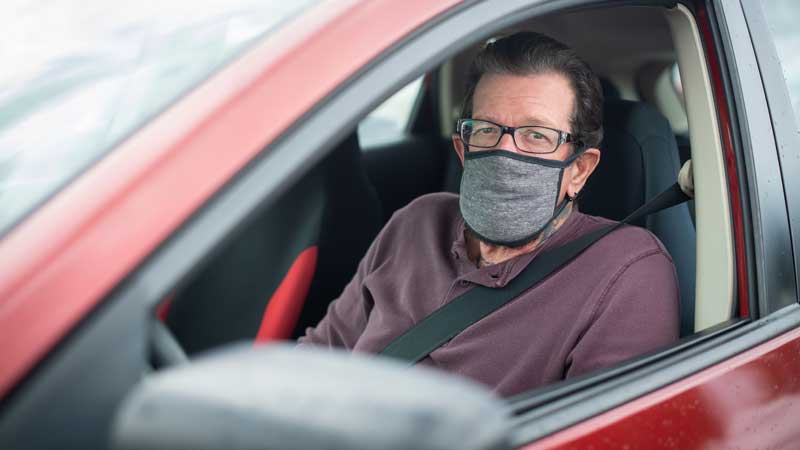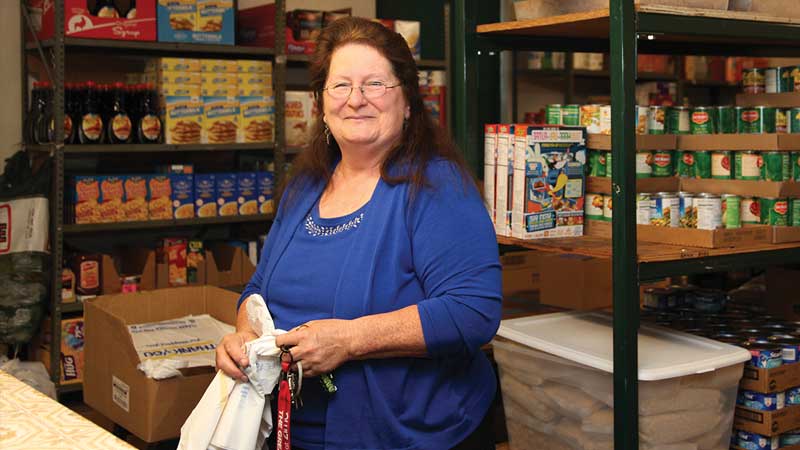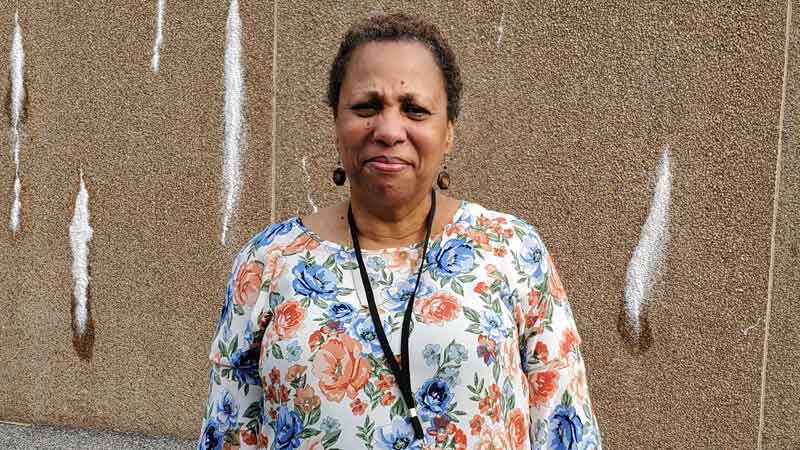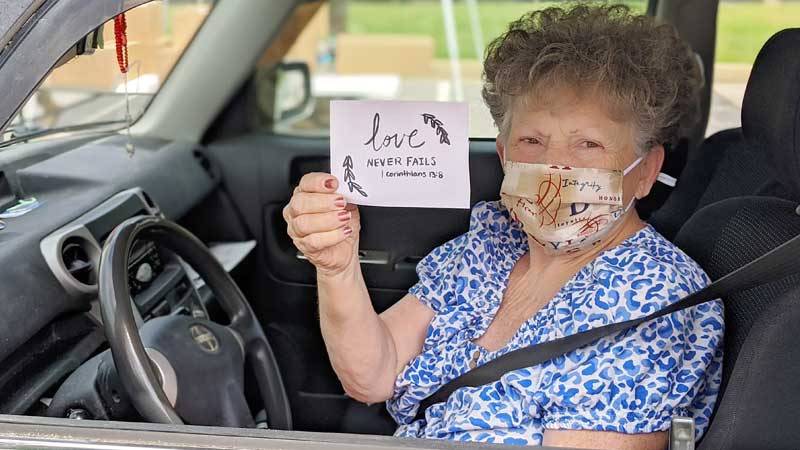Experiencing the Stigma of Food Assistance for the First Time

“When we have to ask for help, we have to show our vulnerability and that’s not easy for many of us to do — and when we have to ask for help with food, it can make it even harder because some people feel a greater sense of shame of not being able to meet a basic need.”
“Firsts” signify change. They can signify new beginnings and refreshing starts. But not all “firsts” are the result of desirable circumstances. In some contexts, a “first” can introduce emotions of anxiety, apprehension, and embarrassment. Such is the case for some of our food-insecure neighbors thrust into positions where they need to seek assistance and visit a food pantry for the first time.
Overcoming Psychological Stigmas

“In situations where people find themselves in need, especially for the first time, it’s common for them to feel embarrassment, anxiety, shame, depression, fear, and even a sense of isolation,” said Dr. Neda Gould, an assistant professor in the Department of Psychiatry at Johns Hopkins School of Medicine. “These emotions can be barriers to asking for help.”
According to Dr. Gould, there’s a “bi-directional” relationship between mood disorders, such as clinical depression, and a person’s capability to satisfy their basic needs.
“If someone has depression or anxiety and it’s really getting in the way of their functioning, that in and of itself can lead to food insecurity. Cyclically, if you’re unable to work, then the food insecurity that may result from that can lead to greater feelings of depression and anxiety,” said Dr. Gould. “Then there’s an aspect of the nutritional component where needs are not being met. And so that person isn’t feeling well or motivated to address underlying issues.”
Marge Blum, the food administrator and donation coordinator at Shining Star Baptist Church Food Pantry in Middle River, Md., has some very personal feelings about the stigma surrounding food assistance.

“Many people were raised to think that you have to work for what you want and what you need, especially when you have children. When you don’t have that anymore, how can you explain it to your children? You don’t want them to think you’re poor,” said Blum, who herself, has had her fair share of struggles with food insecurity. “My kids lived with that, so I can tell that people are thinking about their families, and then they just get embarrassed.”
Once an individual musters enough courage to take the first step and seek food assistance, these emotions are likely to be further exacerbated by the unknown circumstances they encounter when they first arrive at a food pantry.
For eight years, Aaron’s Place (formerly known as Living Waters Food Pantry) has been making sure hungry people in Denton, Md., have access to nutritious food. The organization’s Executive Director, Cheryl Beulah, has noticed a pattern among how people new to food assistance react during their first visit to the pantry.
“The first time that people come here, they are often very humble since they’ve never had to use a food pantry before. Because of that, they’re a little apprehensive,” she said. “They’ll ask ‘what should we do?’ or ‘what are the rules?’ or ‘what is it going to take for me to get food,’ not knowing that they can just walk in. People are pleasantly surprised when they realize that all I have to do is register their name and then they can go ‘shopping’.”
Marge and Cheryl are just two representatives of the hundreds of MFB Network Partners all over the state who treat Marylanders in need with kindness and dignity, welcoming and shepherding first-time food recipients through the process of helping them get back on their feet.
Increases in First-Time Pantry Goers
Last spring, as COVID-19 began to ravage Maryland – taking away jobs, health, and hope – more and more Marylanders found themselves in need of food assistance, many for the first time in their lives. We know that across the state, the demand for food has essentially doubled, and both Cheryl and Marge are seeing many new faces at their pantries.
“We actually have documented a 45% increase in first-timers since this pandemic started – people from all walks of life; it’s just been amazing,” noted Beulah. While some of the individuals and families have only been to Aaron’s Place a “couple of times and are now over the hump,” more and more of them are becoming regulars.

Prior to the pandemic, the Shining Star Baptist Church Food Pantry served about 135 individuals on an average day when it was open. Then, starting in mid-March, that number began to climb, and climb, and climb.
“The number of first timers coming in has increased by about 55 or 60%,” said Blum. “We’ve converted to doing strictly drive-through now so that we can help all people. I’ve gone from putting 200 cars through a drive-thru line to 300 and 400 cars some days!”
A Hopeful Look Forward to a Stigma-Free World
“When someone is experiencing something difficult, it’s very hard for us to imagine: ‘that could be me,’” said Dr, Gould. “And so, we distance ourselves from people in need. We look down on some individuals so that it doesn’t affect our own sense of self-worth.”
The challenges that food insecurity can create — the agonizing choices like buying groceries or paying bills, purchasing food or medicine, or even having to forgo some meals to ensure their children have enough to eat — are overwhelming enough, without the extra burdens of stigma.
“The people that are in these lines feel so disrespected sometimes,” said Blum. “Society has to see it differently. Somebody has to get through to society and say, ‘they’re the same as us.’ We’re all human and every living human needs some food source. That’s one thing that everybody shares in common – you need food to survive.”

“I hope that this pandemic has, in some ways, brought everyone closer and made us realize our common humanity. We need to think of this period of time as an exceptional one in our lives, where we all need some form of assistance, and that it really does take bravery and strength to ask for help,” said Dr. Gould.
COVID-19’s varying effects on individuals across the state has elevated the issue of hunger, making now the optimal time to move on from decades of stereotypical thinking and finally eliminate the stigma surrounding food assistance.
“The individuals who are struggling with the food insecurity are really no different than others,” Dr. Gould added. “They are human beings that had their lives derailed in some way, and it can happen to any of us at any time. If we can really practice compassion and empathy, we can start to eliminate some of these stigmas.”
If you or someone you know is in need of food assistance, please use our Find Food tool to locate a MFB Network Partner near you.
Get updates on our progress in the fight against hunger
Want to see how your involvement directly impacts the well-being of your neighbors in need? Get the latest news sent to your inbox.






